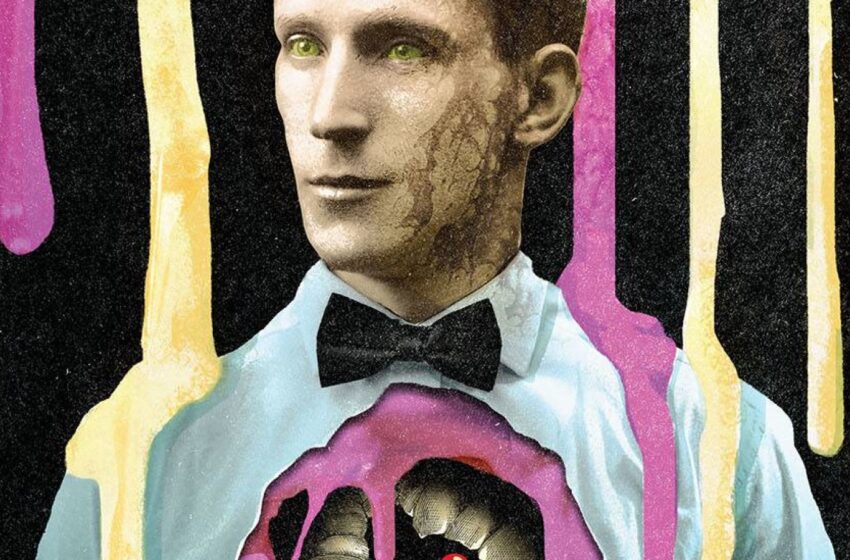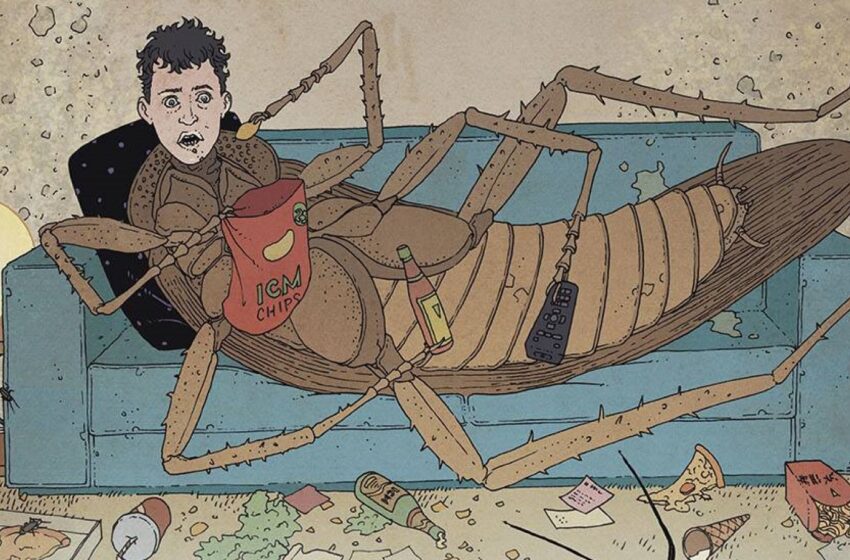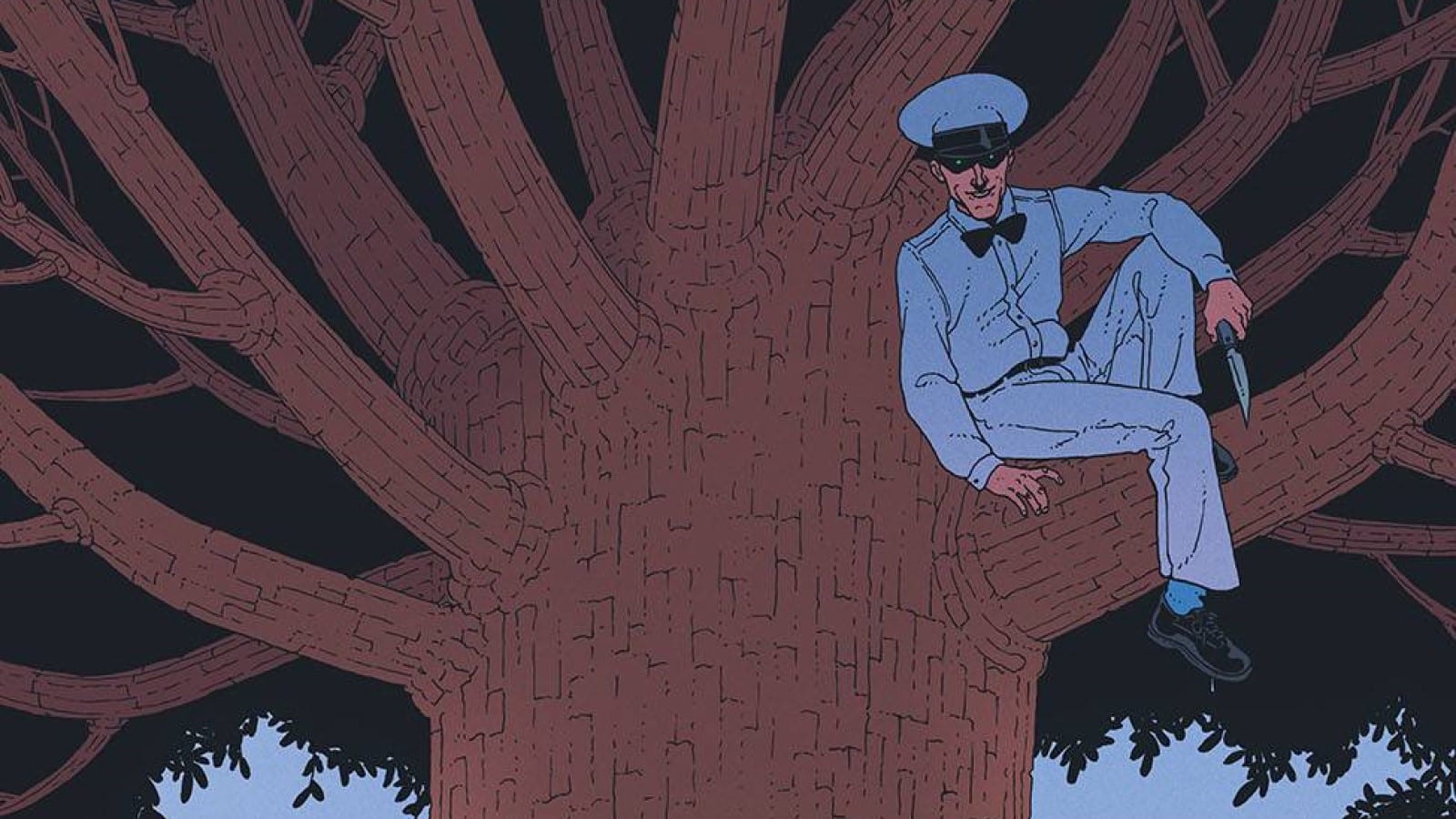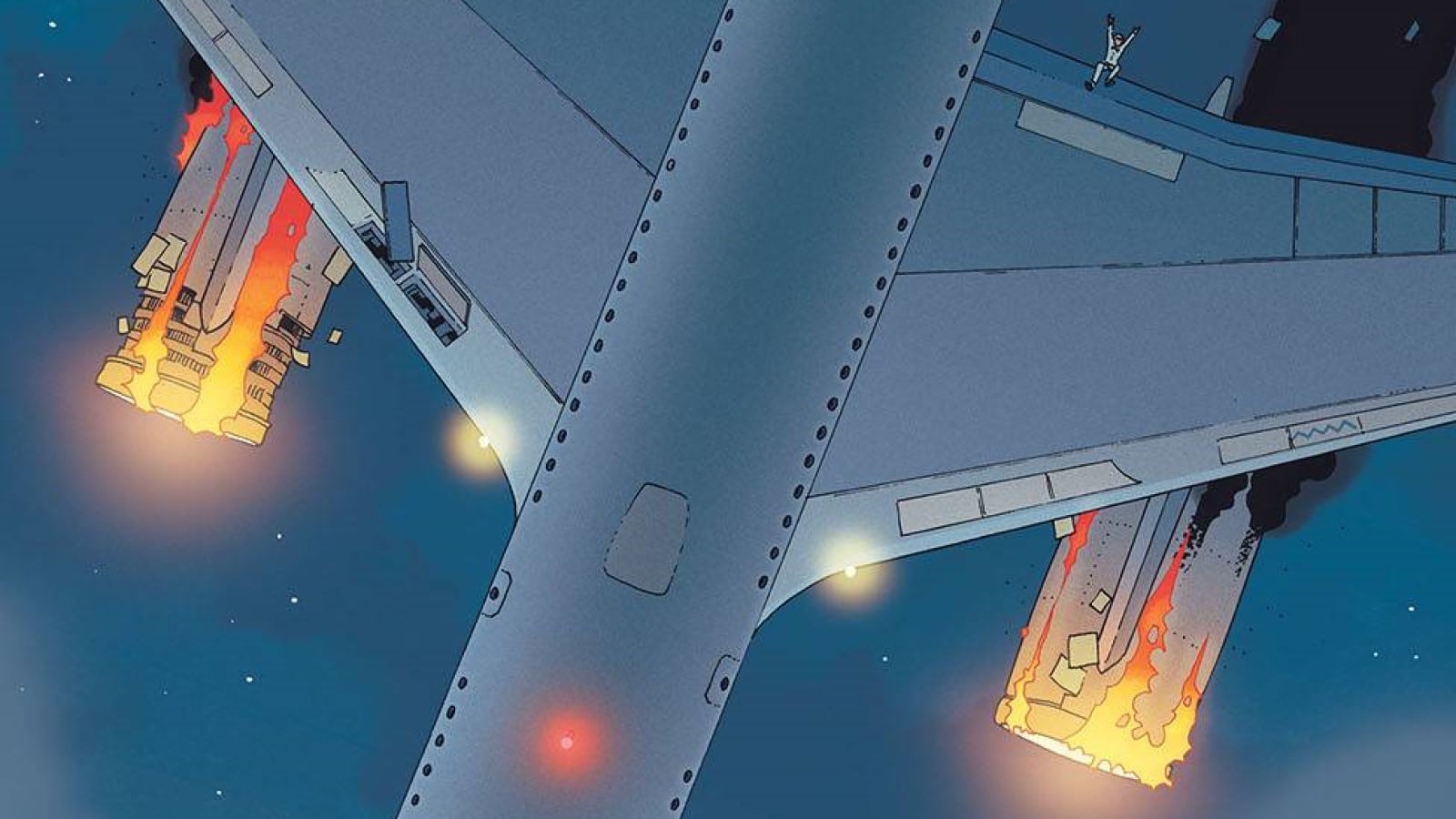Some of us are lucky enough to find passions or interests that truly define us. These are pursuits we’re willing to go to the ends of the Earth for all while remaining uncompromising. But what about the cost that comes with this journey? Find out in Ice Cream Man #28, written by W. Maxwell Prince, drawn by Martin Morazzo, colored by Chris O’Halloran and lettered by Good Old Neon.
Will Nevin: Ari, what’s your favorite word? You know, the sort you wait to break out at just the right moment?
Ari Bard: Perhaps, like our dear friend Brian Gartner, I am too much of a dreamer destined to meet an unfortunate demise, but quixotic has always been a word I save for special occasions. How about yourself?
Will: As a bit of a cad, a lout and someone with a fondness for the words of old, I’ve always liked peckerhead as an insult, but I rarely get to use it. Anyway, for the non-peckerheads still reading, Ice Cream Man #28 is an issue about words, or rather, an issue about words and the hold they have upon one etymologist (that’s a person who studies words while an entomologist studies bugs — a joke made a few times and not one altogether unexpected in such a creepy crawly series). Before we move on to the main bits, I want to talk about the cover — what are some of the words/definitions that stick out to you?
Ari: Well, I’m no expert, and it has been awhile since I’ve read the dictionary, but some of these definitions do have a tinge of unsettling morbidity that’s characteristic of Ice Cream Man. Words like entomology, empty, emaciate and earsplitting all have a stylistic flair that highly suggests things are not going to end well. One thing I did not expect, however, was for all of the words to link to the story in some way, and I believe they did!
Will: The one that I keyed in on? Egocentric — the cardinal sin of all horror morality plays that certainly unfolds here.
Ari: That’s certainly true. We’ll get to it further into the discussion, but Brian’s search for knowledge doesn’t seem to have a motivation that’s very altruistic.
The Etymologist and the Mountain

Will: On the surface — without reading into it as one would normally do with an Ice Cream Man treat — this is a simple story of an expedition up a mountain gone wrong. What did you think of the core narrative we have here?
Ari: It made me realize how much Ice Cream Man stories seem to be about absence at their core. So many issues begin with people unhappy with where they are and search for something that will give them answers, and this expedition is no different. None of these missions are altruistic, and nothing they’re searching for is that magical solution to everything, but at the same time, I get it. It’s so easy to look to the future or at something you don’t yet have and say, “After ______ I’ll be happy” or “Once I achieve __________ I can relax.” I’ve certainly fallen victim to that many times, but it’s never the case.
Higher, Deeper, Farther up the Mountain We Go
Will: There’s more here, of course, than a simple hike gone sideways. My first reaction is that this issue enforces one of the enduring commandments of Ice Cream Man: Life depends on more than social media or wherever empty, caustic rhetoric may find itself. Or, to distill that to a great piece of Latin sure to crush our intrepid etymologist, acta non verba. The trek up the mountain is ultimately pointless and destructive — but I thought it was a great allegory for how worthless writing and language feel sometimes in the face of so many overwhelming real world problems.
I’m not sure if there’s ever been a more poetic attack against the concept of “raising awareness.”
Ari: I definitely agree with the allegory. It often seems like no matter how much we write about something, anything, there are things even the mighty pen cannot fix. That being said, however, I am always a bit conflicted by the type of character who is able to devote their entire life to a singular dream only to realize they neglected the love and people around them all along for something that is lifeless and does not provide the same amount of passion in return. In many ways, I respect those people that have said singular vision a great deal, even if people, circumstances, everyday distractions and my own diverse interests coupled with an uncertainty about my future prevent me from having one of my own.
Anyways, I guess my point is to ask if there’s anything so wrong about Brian devoting his life to the harmless and valuable study of words. Is it really that empty a cause? Granted, I do think that Brian’s intentions were less than altruistic and that he’s never aimed to use his knowledge for anyone’s betterment, but that’s a greater crime than simply being passionate about something.
Will: There’s a point where egocentricity turns into cruelty if there are others in your life who need love and attention, but we don’t know whether Brian’s obsession with his work crossed into that — although it’s certainly hinted at. Life is a series of decisions, an allocation of resources of time and effort. What we make of those decisions says a lot about our character. But your general point stands — I think it’s great for people to have a singular passion in their lives, whether that’s something in the creative arts or simply a drive to discover or learn.
Ari: Definitely. I guess we just have to ask, what is it all for? Is learning only for the sake of learning enough? It doesn’t seem like Brian is using his knowledge for any larger purpose, and I think it’s fair to ask what that means for a person’s character. I honestly do not know the answer. I do know, however, that over the past few years, people in my life have become more important to me than many other types of aspirations.
Rolling Downhill with a Quickness

Will: I haven’t interviewed W. Maxwell Prince in a bit, but I should — if only to get clarity on the following point: With the tease we have at the end of the issue, it sure seems like this series is heading for a wrap-up with one final arc that — given the structure of the book to date — will conclude at #32. Did you get that sense, or am I once again obsessing about the end of this book? If it is wrapping up, how do you think we’re going to look back at this weird, wild experiment?
Ari: It’s certainly possible, but that W. Maxwell Prince likes to keep us on our toes. Many elements in the final page seem to point to a final arc, concluding with a grand trial of the Ice Cream Man himself. Everyone loves a final grand trial. I think that we can look back on this series as one that never stopped playing with genre and form while capturing the essence of nihilism and humanity’s general insignificance. For better or worse, I feel like this series never strayed from those two missions and the only thing that varied was the level of overall inventiveness and the mood you happen to be in while reading the newest issue. It’s hard to maintain such a level of consistency across 28 issues.
Will: It’s been such a quirky book — sales went up deep into the run; it’s never been nominated for an Eisner even though it’s too goddamned good not to have won a truckful, and it’s made it (presumably) 30+ issues as an indie book in addition to a spinoff miniseries. That’s some rarified, mountaintop air. But if it’s going to end — or if it’s going to transition into more miniseries — the trial of Riccardus seems like the way to go out.
Sticky Sweet Treats
- “Brian Gartner,” our brave word nerd, is suspiciously close to Bryan A. Garner, a legal scholar and editor of Black’s Law Dictionary for the last 20+ years. That can’t be a coincidence, right?
- We can call Haha a spinoff, right?






